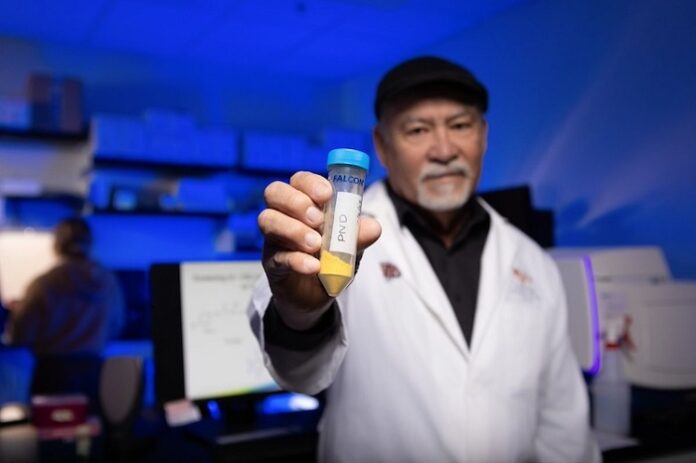

A Surprising Discovery at UTEP
Can a drug used to treat malaria be repurposed to fight cancer? Researchers at The University of Texas at El Paso (UTEP) believe so. They have secured a patent for pyronaridine, an anti-malarial drug used for over 30 years, to be used in cancer treatment.
The discovery stemmed from an unexpected moment at UTEP. In 2017, Renato Aguilera, Ph.D., a professor of biological sciences, attended a seminar on pyronaridine. As a seasoned cancer researcher, he quickly recognized that the drug’s molecular structure could be effective in targeting cancer cells.
“Louis Pasteur once said, ‘Chance favors the prepared mind.’ When I examined the drug’s structure, I saw its potential to attack cancer cells,” Aguilera said. “Now, with this patent, we are one step closer to making this drug available for patient care.”
How Pyronaridine Fights Cancer
Aguilera, along with then-doctoral student Paulina Villanueva, Ph.D., conducted extensive laboratory research to understand how pyronaridine interacts with cancer cells. In 2018, they published their findings in PLOS One, showing that in test tube experiments, pyronaridine slowed cancer replication and induced “cellular suicide” in leukemia, lymphoma, melanoma, multiple myeloma, lung, ovarian, and breast cancer cells.
Cancer cells multiply at a much faster rate than normal cells, leading to rapid tumor growth and disease progression. Aguilera and Villanueva discovered that pyronaridine disrupts an enzyme called topoisomerase II, which cancer cells rely on to replicate. By interfering with this enzyme, the drug slows cancer growth and triggers programmed cell death, effectively forcing cancer cells to self-destruct.
A Potential Game-Changer for Cancer Treatment
One of pyronaridine’s most promising qualities is its selective targeting of cancer cells. Unlike traditional chemotherapy, which damages both cancerous and healthy cells, pyronaridine leaves normal cells unaffected.
“With pyronaridine, we achieve the trifecta: slowed cell growth, programmed cell death, and minimal impact on healthy cells,” Aguilera explained. “In the future, this drug could be used in combination with immunotherapy to enhance the process of eliminating cancer cells.”
Encouraging Early Results
As per the utep.edu press release, so far, pyronaridine has shown success in animal studies. A pilot study conducted by the pharmaceutical firm Armaceutica on terminally ill patients with late-stage breast, lung, and liver cancers suggested improved longevity. However, Aguilera cautioned that before the drug can be widely used for cancer treatment, it must undergo clinical trials—a rigorous, yearslong process to confirm its safety and effectiveness in humans.
A Milestone for Cancer Research
Villanueva, now a postdoctoral research scholar at the NanoScience Technology Center at the University of Central Florida, played a key role in this breakthrough. Reflecting on the achievement, she said, “It’s incredible to see our hard work lead to this milestone. Research unlocks endless possibilities, and while medicine isn’t one-size-fits-all, pyronaridine could be a game-changer for some patients. There’s still a long road ahead, but securing this patent is a crucial step forward.”
Patent Recognition and Future Prospects
This spring, UTEP and Armaceutica secured a U.S. patent for pyronaridine’s use in cancer treatment. The patent acknowledges Aguilera as the drug’s inventor and intellectual property owner. Since 2019, Aguilera has served as Armaceutica’s chief scientific officer, working to bring innovative cancer treatments to market.
As research progresses, scientists remain hopeful that pyronaridine could offer new hope for cancer patients. The journey is far from over, but this discovery marks an important milestone in the ongoing fight against cancer.






















